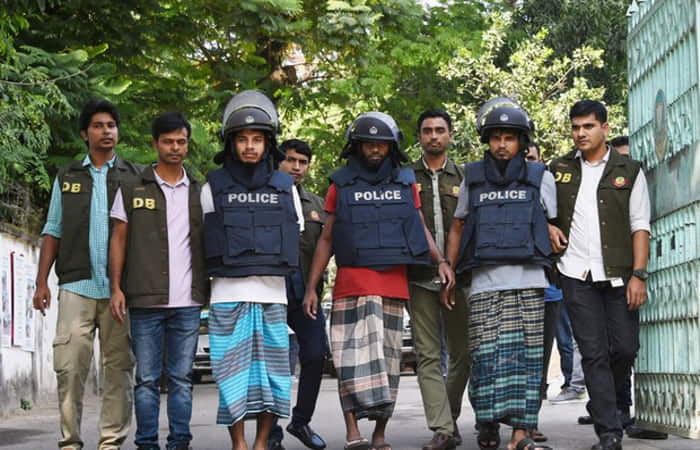The rapid turn of events in Afghanistan would definitely be a cause for concern for the Sheikh Hasina government, especially as the opposition Bangladesh Nationalist Party (BNP) has been raising its pitch against the secular principles of the ruling Awami League. With the Taliban taking control of Kabul, Pakistan’s control over non state actors is also expected to increase in the country unless the Hasina government comes out with stringent measures to contain radicalism.
Besides fear of fuelling of radicalisation, the Taliban regime will bolster BNP and the Jamaat e Isalmi, which have been working to overthrow the current government.
In a report – ‘Bangladeshi opposition forces are weaponizing the radical Hefazat-e-Islam to overthrow the Sheikh Hasina government’, published last week, the EU accredited think tank– European Foundation for South Asian Studies (EFSAS) said that the violence that unleashed in Dhaka in March coinciding with the celebrations of 50 years of independence was aimed at toppling the Hasina government.
Prime Minister Narendra Modi was in Dhaka to participate in the March celebrations along with several other leaders.
Reports suggested that Pakistan and even its High Commission have had a role to play in the March violence.
Also Read: As Taliban takes over Kabul, Africa fears it could be the 'new frontline of terror'
In fact, HeI chief Junaid Babunagari, who died of a brain stroke on Thursday, was also reportedly in constant touch with the Pakistani mission in Dhaka.
“One does not need to look too far back into the past to comprehend the reason why Pakistan is desperate to get rid of Sheikh Hasina and install the BNP – JeI combine back in power. In the years that the two parties were in power, Pakistan had unfettered occasion to introduce its extremist vision into Bangladeshi society,” the EFSAS said.
The Diplomat earlier said that with the ascendency of the Taliban, Bangladesh faces increased risks. “Bangladesh is already in the midst of a re-emergence of fundamentalist Islamic nationalism, which began in the early 2010s with the Awami League government’s execution of Jamaat-e-Islami’s Islamist leaders. These executions have created a huge backlash from Islamist organizations which perceive Islam to be in danger, threatened by secular and democratic forces,” it said.
Uncertainty in Bangladesh will directly impact India’s social and economic threads. A steady, stable and developing Bangladesh is a boon for India as the two countries share a 4,096-kilometre-long international border.
Bangladesh is strategically located and will play a crucial role in the fast-emerging Indo Pacific geopolitics as well as India’s Act East policy.
Also Read: India, Bangladesh, Sri Lanka stare at terror surge as Taliban advances in Afghanistan
Any instability in the South Asian nation would jeopardise the infrastructure projects boosting connectivity and people to people contacts.
As Bangladesh celebrated its 50 years of independence, the country had reasons to cheer.
A Dhaka Tribune report said that the think tank even noted that in 1971 Pakistan was 70 per cent richer than Bangladesh but today Dhaka is 45 per cent richer.
“For Hasina, the main objective has been the economic growth of the country. In the process she has managed to address problems relating to extremism. Though challenges related to radicalism remain, the authorities have set their targets very clearly,” an analyst told India Narrative.




















